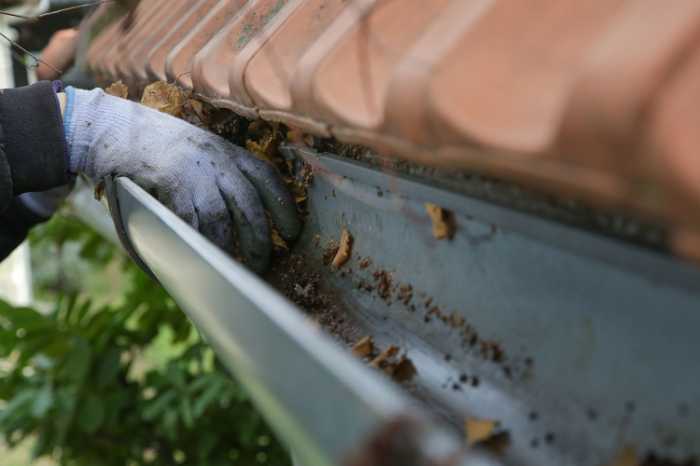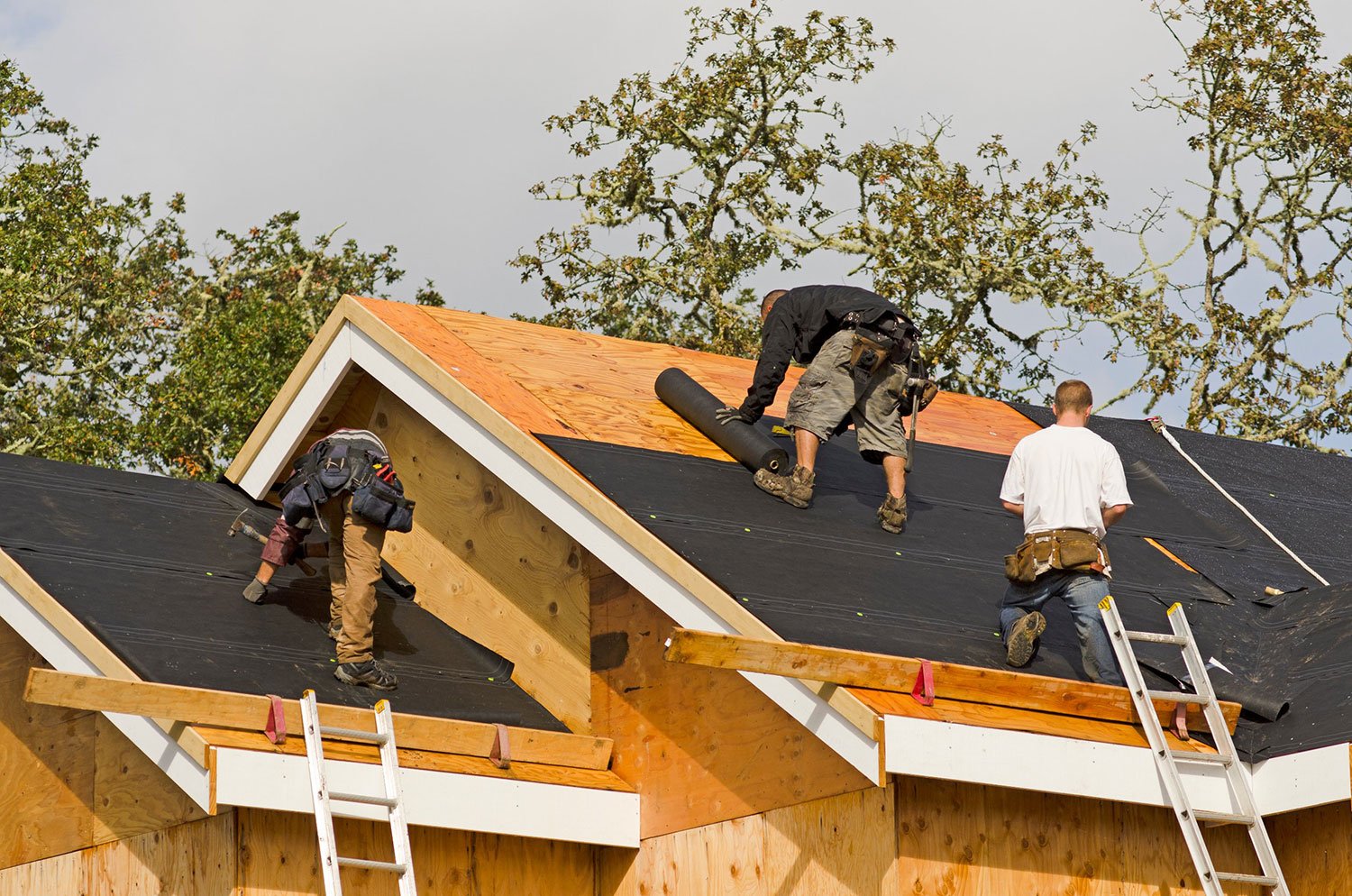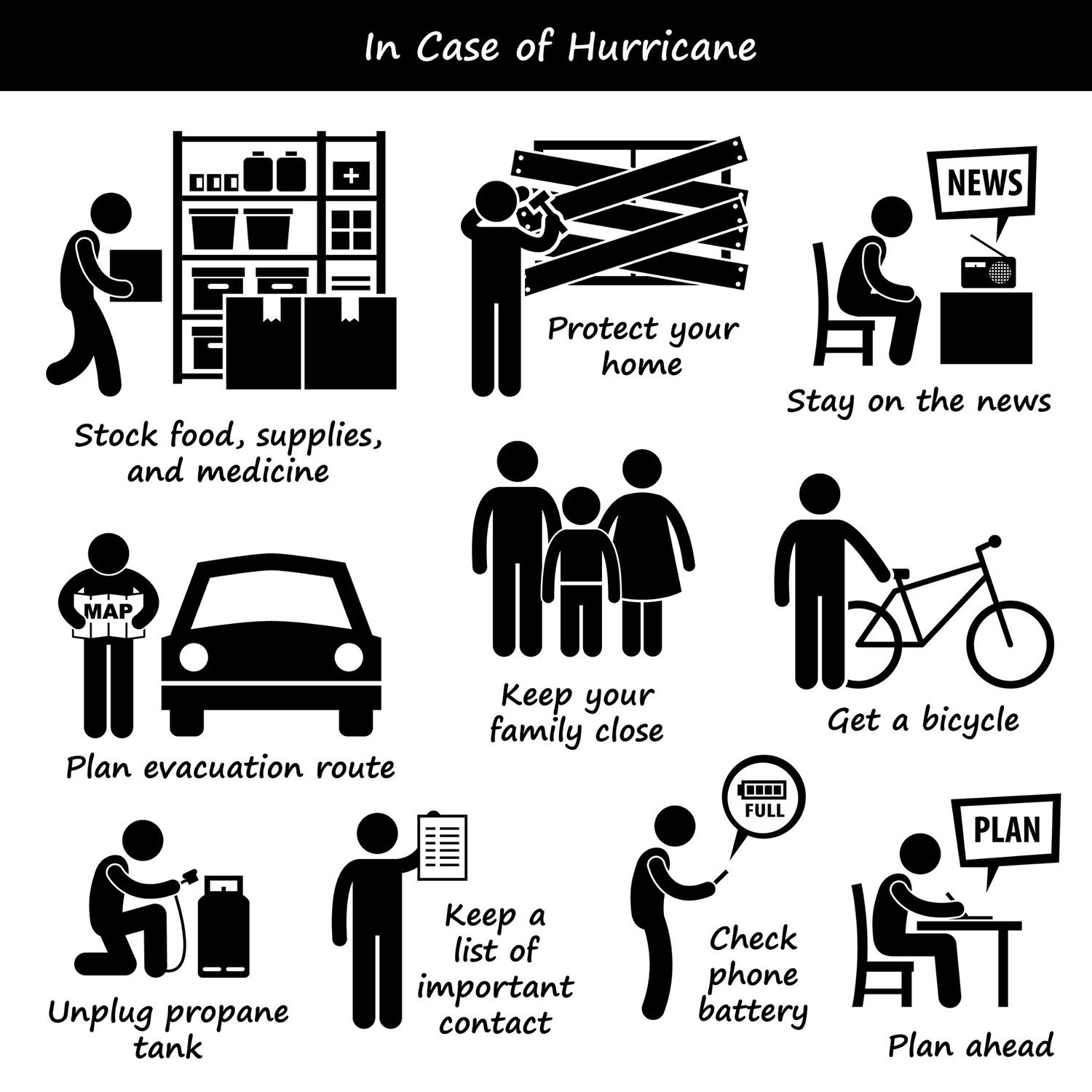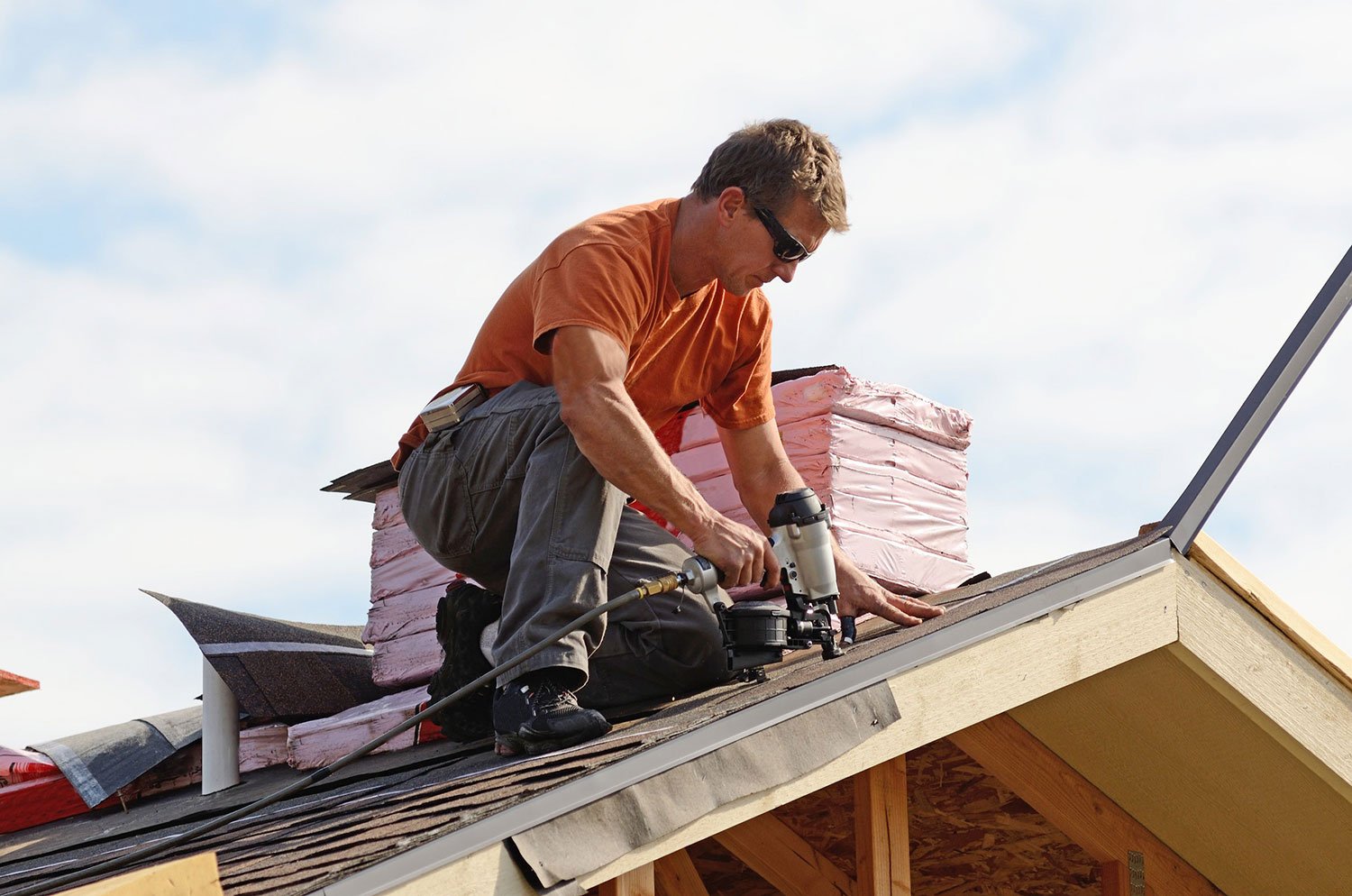Storms wreak havoc on your roof, and the roof damage can be devastating. A strong gust of wind can cause an entire roof to collapse, leading to costly repairs or even human injury or death. If you want to make sure that your home is prepared for a high wind storm, follow this guide:
First Line of Action
Your attic is the first line of defense against wind damage. If you have an unfinished attic, make sure that there are no loose boards or nails that could come loose and cause damage. In addition, check the rafters and trusses to make sure they are all securely fastened. Fix them no matter the cost to prevent any other damage. Always be ready for the next windstorm.

Clean Out Your Gutters
Cleaning out your gutters is one of the most important steps in preparing your roof for strong winds. The tree branches and other debris that collect in the gutters can be extremely dangerous, as they can fly off and damage anything below.
If you don’t clean out the gutters, you also run the risk of clogs forming in them. These clogs are caused by leaves, twigs, and other items that cause blockages within the gutter itself. Clogs can also happen if there's too much rainwater flowing through your home’s gutters at once; this can pool up, even cause leaks or flooding in your house, and result in serious damage to both property and people!
If you want to prevent problems with overflowing water on your roof during high wind storms or heavy rains (ie reduce stress on your home), make sure that you clean out all debris from the inside of all downspouts before they reach ground level, otherwise, they might be further damaged by wind gusts and heavy rain.

Roof Deck
Your home's roof deck is the layer of your roof that actually protects your home from the elements. It is typically made out of plywood or some other type of wood, and it's covered with a waterproof and weatherproof membrane, along with a secondary water barrier.
If you live in an area that experiences high winds on a regular basis, it's important to make sure that your roof deck is securely fastened to your home. If it's not, the high winds can lift up the entire roof, causing it to collapse.
Strong Wind
If you live in an area that is prone to strong winds, have your roof inspected by a professional to make sure it's up to the task of keeping you safe (and no shingles are about to fly off)–before storm season hits. Missing shingles are a sure sign that you're not prepared for the next severe weather event.
Getting Roof Repairs
If you have any damage to your roof due to strong winds or flying debris, it's important to have it repaired as soon as possible. Not doing so can result in further repairs and further expenses.
A professional roofing contractor will be able to repair any damage to your roof, no matter how severe it is. They will also be able to inspect your roof to make sure that there is no further damage that needs to be repaired.
Don't wait until the air pressure starts to drop or the next high wind storm hits to get your roof repaired. By then, it will be too late and the damage will have already been done.
Roof Replacement
In some cases, high winds can cause so much damage to your roofing systems that roof repair doesn't even make sense, and you need a complete roof replacement.
If your roof has been damaged beyond repair, it's important to contact a professional roofing contractor as soon as possible to get started on the replacement process. They will be able to help you choose the right roofing materials for your home and budget.
Roofing Inspection and Roof Wind Damage
Flat roofs are especially prone to damage because it's easier for water to pool up on top of them. It's best to be proactive and have your flat roof or other roofing systems regularly inspected by a professional roofing contractor or a professional roofer. Professional roofers can also provide you with recommendations for making sure that your roof is prepared for high wind speeds.

Hurricane Season and Straight Line Winds
Hurricane season is typically from June to November, but high winds can occur at any time of the year. If a hurricane is headed your way, it's important to take action to protect your property.
Straight line winds can reach up to 100 miles per hour, and they can cause just as much damage as a hurricane. If you live in an area that is prone to high winds, make sure you have a plan in place for what to do if a storm is headed your way. Listen to the local news or check online for updates on the weather.
If you have any questions about preparing your roof for high winds or would like to schedule an inspection, contact a professional roofing contractor today.
What You Can Do Yourself:
Clear Asphalt Shingles and Debris From Your Roof
- Remove any loose shingles and ensure moisture protection.
- Clear leaves, debris, and dead branches or tree leaves from the roof.
- Remove snow from your roof to prevent ice dams or leaks.
- Prepare grounds: Trim branches near your roof, before they fall.
Inspect the Roof
Remove any loose shingles. Strong winds can cause shingles to loosen and fly off the roof, so it’s a good idea to check them. If they are already coming up, you will want to use a hammer and pry bar or a flathead screwdriver to remove that part of the shingle before proceeding with repair work (this will not damage your roof).
Remove any loose debris. Debris such as leaves or even small branches can get caught in strong winds, which could lead to damage if left unchecked during high-wind events like hurricanes and tornadoes. Clean up this debris by sweeping it away with a broom or blowing it off with a leaf blower so that it doesn’t get lodged into any cracks between your shingles when you replace them later on in this process!

Create an Emergency Plan for You and Your Family
One of the most important things you can do to prepare your home for a hurricane is to create an emergency plan for you and your family. This means making sure that everyone knows where to go in case of an emergency, how to get there safely, how someone else will be able to find them if they don't know where they are, and what help they might need when the storm passes.
First thing's first: make sure everyone in your home knows where the safest place is on the property (usually it's away from trees and power lines). Once everyone knows where that spot is located, they should not leave it until after the storm has passed completely.
Make sure everyone also understands how long it could take before rescue workers can reach them during or after a catastrophic weather event—and make sure they know how far away their nearest neighbors live so that if something does happen while no one else is around (or even worse), there's at least someone who knows about it right away! If possible, have some extra supplies prepared in advance: food rations; drinking water; any medications needed by anyone who lives inside with you—these should all be stored somewhere easily accessible.

Hire a Professional to Inspect Your Roof
You should also have your roof inspected by a professional regularly. They can provide you with an accurate assessment of the damage and suggest ways to remedy it. This is important because if you don’t know how bad the damage is, you won’t know how much money or time to spend fixing it.
File an Insurance Claim
One way you can prepare for the inevitable (the inevitable if you live in an area with frequent summer storms) is to make sure you have the right insurance coverage in place.
If you don't already have hurricane or wind damage insurance, now is the time to get it. If you have insurance, make sure you understand the terms of your policy and what is covered. Talk to your insurance company if you need to. Some policies have high deductibles for hurricane damage, so you will want to make sure you are prepared to pay that amount out of pocket if necessary.
It's also a good idea to take photos or videos of your home and belongings before a high-wind event so that you have documentation of their condition in case you need to file a claim. This will help ensure that you are reimbursed for any damage that is caused by high winds.
Dealing With Wind Roof Damage
High winds can cause serious damage to your roof! It's important to inspect your roof regularly and make sure it's in good condition. You should also have an emergency plan in place in case of any big storms. If you live in an area with frequent storms, make sure you have the right insurance coverage in place.
If you need help preparing your home for high winds or other extreme weather events, contact us today! we're always here to help.

COMMENTS